Scottish Fold Temperament: Understanding Their Unique Behavior

With their iconic folded ears and round, teddy bear faces, Scottish Folds are a breed that immediately captures attention. But beyond their looks, it’s their temperament that truly wins people over. Known for being affectionate, gentle, and surprisingly playful, these cats bring a special kind of harmony to a home. Understanding the Scottish Fold temperament helps potential owners know what to expect — and ensures these charming companions live their happiest lives.
Meet the Scottish Fold
The Scottish Fold is not just a pretty face with unusual ears. Their personality is equally unique, shaped by a balance of calmness and curiosity. Unlike high-energy breeds that demand constant playtime, or aloof cats that keep to themselves, the Fold comfortably sits in the middle.
This means that, in everyday life, they adjust to the rhythm of their family. If you want a reading buddy, they’ll curl up next to you. If you’re ready to play, they’ll happily join in. Their adaptable personality makes them suitable for both families and singles, and they fit well into apartments or houses alike.
Owning a Fold often feels like sharing your life with a quiet shadow — always nearby, always attentive, but never overwhelming.

General Temperament
Calm and Affectionate Companions
One of the most recognizable traits of the Scottish Fold temperament is its calm nature. These cats enjoy spending time close to their humans, but without being demanding. They don’t need constant attention — instead, they find comfort in simply being near you. Whether it’s lounging in a favorite chair or napping on the couch beside you, their steady presence brings a sense of peace.
Their affectionate side is equally strong. While not as clingy as some breeds, they love gentle interaction. Many Folds enjoy being picked up, and some become classic lap cats who settle in for hours. Their loyalty shows through small actions: a quiet greeting when you enter a room, or choosing to sleep in your bed every night.
Strong Bond With Owners
Scottish Folds often develop particularly close attachments to one or two people in the household. These bonds are deep, and the cats may follow their favorite humans from room to room. They’ll often “check in” throughout the day, watching quietly or sitting nearby while you go about your routine.
This strong connection can be rewarding but also requires awareness. Folds may show signs of distress if left alone too long. Owners who are frequently away may need to consider extra companionship, either from another pet or enrichment activities.
Dislike of Being Left Alone
Extended time without human presence is difficult for many Scottish Folds. While they can manage short absences, long hours of solitude can cause anxiety or boredom. This sometimes leads to unwanted behaviors, such as scratching furniture or overgrooming.
To help a Fold cope better when alone, consider:
-
Leaving interactive puzzle feeders filled with treats.
-
Offering soft background noise like music or TV.
-
Creating elevated perches or window seats for bird-watching.
-
Providing a rotation of toys to keep things fresh.

Key Behavior Traits
Playful Curiosity
Although known for calmness, Scottish Folds are still curious explorers. They enjoy interactive toys, feather wands, and puzzle games that challenge their minds. Their play sessions tend to be short bursts of activity followed by long naps, a rhythm that suits their moderate energy levels.
Because of this playful streak, they are a wonderful match for families with children, provided kids are gentle. Folds love chasing rolling balls, pawing at dangling strings, and investigating new objects around the house.
Love for Routine and Stability
Consistency is one of the keys to keeping a Scottish Fold happy. They thrive on routine and often expect meals, playtime, and bedtime at regular intervals. Major disruptions — such as moving house, long absences, or even rearranging furniture — can unsettle them.
Owners can help ease transitions by introducing changes slowly. For example, when moving to a new home, set up familiar items like blankets, food dishes, and favorite toys first. This sense of continuity helps them feel secure in unfamiliar surroundings.
Soft and Quiet Communication
Scottish Folds are not loud cats. Instead, their communication is subtle and gentle. They may greet you with a soft trill, purr while sitting nearby, or blink slowly to show trust. Body language is their main form of expression, and once you learn to recognize it, you’ll notice how much they “say” without a sound.
Common ways a Fold communicates affection:
-
Sitting or lying close without asking for attention.
-
Blinking slowly while making eye contact.
-
Rubbing gently against your legs.
-
Quietly following you around the home.
Social Interactions
Scottish Folds are known for being social, but in a calm and measured way. They are generally good with children, provided the children understand gentle handling. They are patient cats, not prone to scratching or biting, but they dislike rough play. Teaching kids to respect their boundaries ensures positive interactions for both.
With adults and seniors, their easygoing temperament shines. They provide companionship without being overwhelming, making them excellent pets for people who value peace at home.
When guests visit, Folds often observe from a distance at first. Curiosity usually draws them closer, but they approach in their own time. This measured approach to strangers makes them adaptable to households with varying levels of activity. For readers curious about breed differences, the article British Shorthair vs Scottish Fold: Who Wins the Title of the Perfect Family Cat? offers a detailed comparison of traits.
Adaptability
Apartment Living
One of the reasons the Scottish Fold temperament appeals to city dwellers is how well they adapt to apartment living. They don’t require much space, and as long as they have stimulation, they’re perfectly content in smaller homes.
Larger Homes
In bigger homes, Folds may pick a few favorite resting spots — often sunny windowsills, cozy rugs, or soft chairs. They enjoy observing from these safe spaces, keeping a quiet eye on family activity.
Handling Environmental Changes
Although adaptable overall, sudden changes can be stressful. Moves, new pets, or disrupted routines can cause anxiety. Owners can make adjustments smoothly with simple steps:
-
Maintain consistent feeding and play schedules.
-
Use familiar bedding and toys to carry over scents.
-
Allow them to explore new environments gradually.
-
Provide quiet retreat areas where they can hide and recharge.

Challenges and Considerations
Health Issues Related to Joints and Cartilage
The folded ear trait that makes this breed famous can also affect cartilage throughout the body. Some Scottish Folds develop stiffness or arthritis in their joints, even at a young age. Watching for changes in movement — such as reluctance to jump or difficulty climbing — helps catch problems early.
Veterinary checkups are essential, and owners should provide soft bedding and avoid rough play that strains joints. A healthy diet and moderate exercise also support long-term mobility.
Boredom and Stress Risks
Because of their strong attachment to family, Folds may become stressed if they feel neglected. This stress can manifest as destructive scratching, overeating, or even withdrawal from interaction. These behaviors aren’t stubbornness — they are signals that the cat needs more stimulation and comfort.
Enrichment Ideas for Mental Stimulation
Keeping a Fold entertained is easier than it sounds. A variety of enrichment activities helps maintain balance:
-
Puzzle feeders that make mealtime interactive.
-
Cat trees or shelves for climbing and observation.
-
Daily playtime with wand toys or rolling balls.
-
Occasional introduction of new toys to prevent boredom.
By providing both physical and mental stimulation, owners can help their Folds remain content and engaged.
Conclusion
The Scottish Fold temperament is truly one of balance — affectionate yet independent, calm yet curious, playful yet not overwhelming. They bring warmth and stability to a home, forming strong bonds with their humans while maintaining their gentle nature. Whether you live in a small apartment or a large house, their adaptable personality makes them an excellent companion.
Building a trusting relationship from the start ensures your Fold feels safe and loved, and in return, they’ll offer loyalty and affection for years to come. Articles like The Ultimate Guide to Bonding with Your New Kitten are especially useful for new owners who want to start their journey on the right foot.
FAQ
1. Are Scottish Folds good with families and children?
Yes, Scottish Folds usually do great with families. They’re gentle, patient, and enjoy calm play, making them a good match for kids who know how to handle cats gently.
2. Do Scottish Folds get along with other pets?
Most do. With slow introductions, they can live happily with other cats and even calm dogs, thanks to their tolerant and easygoing temperament.
3. How active are Scottish Folds compared to other breeds?
They’re moderately active — playful enough to enjoy daily games but not hyper. Expect short bursts of fun followed by long naps.
4. Do Scottish Folds require special care?
Aside from monitoring joint health, they’re pretty low-maintenance. Regular grooming, balanced meals, and enrichment will keep them healthy and happy.


























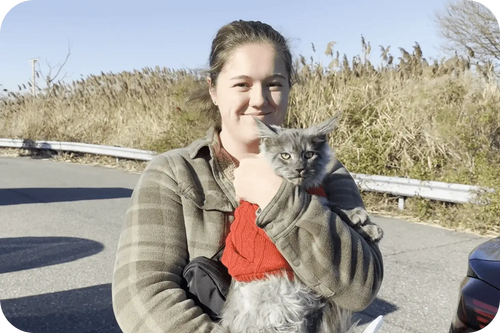
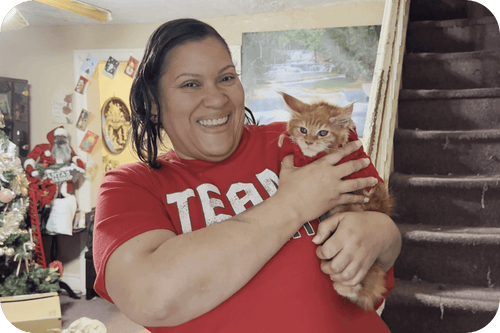
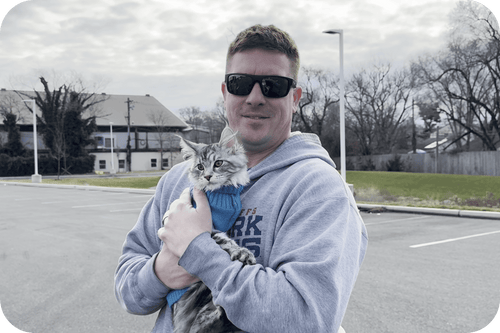






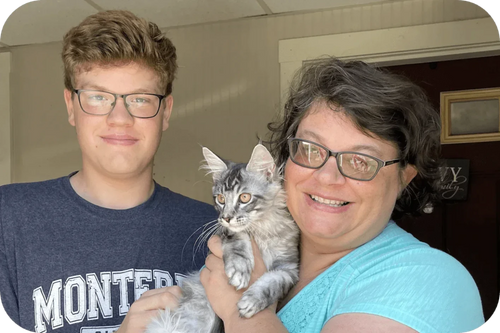

















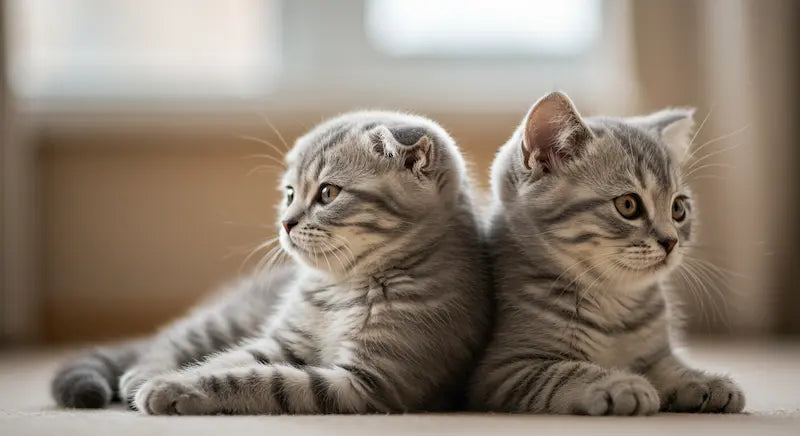
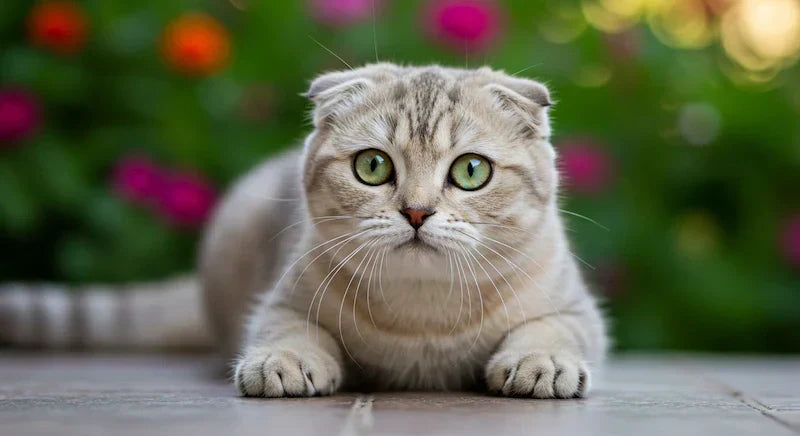
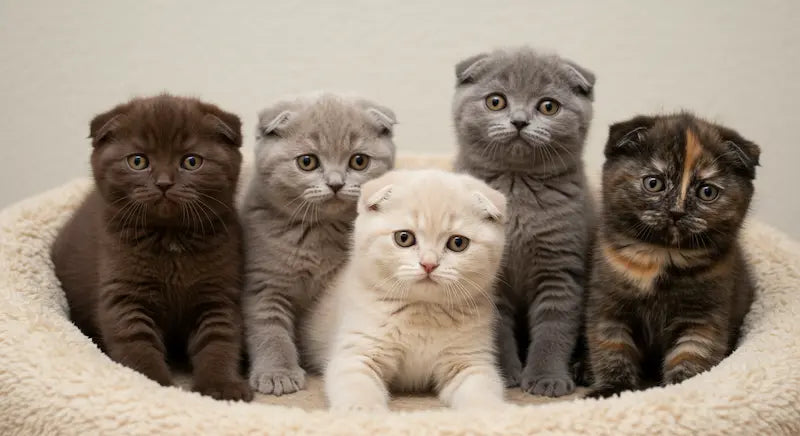
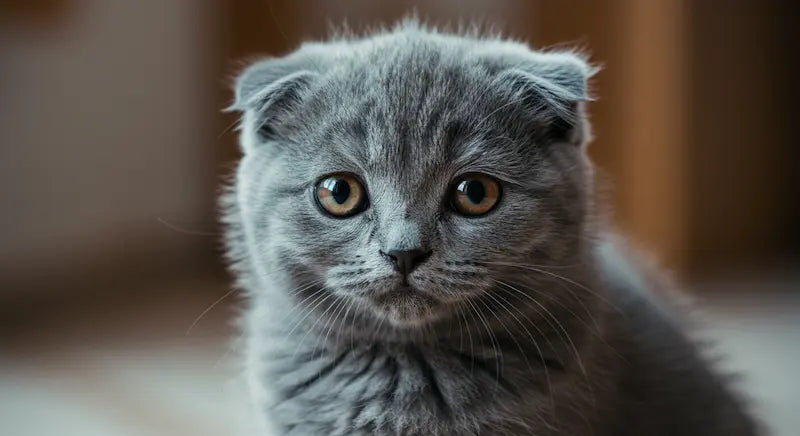




Comments(0)